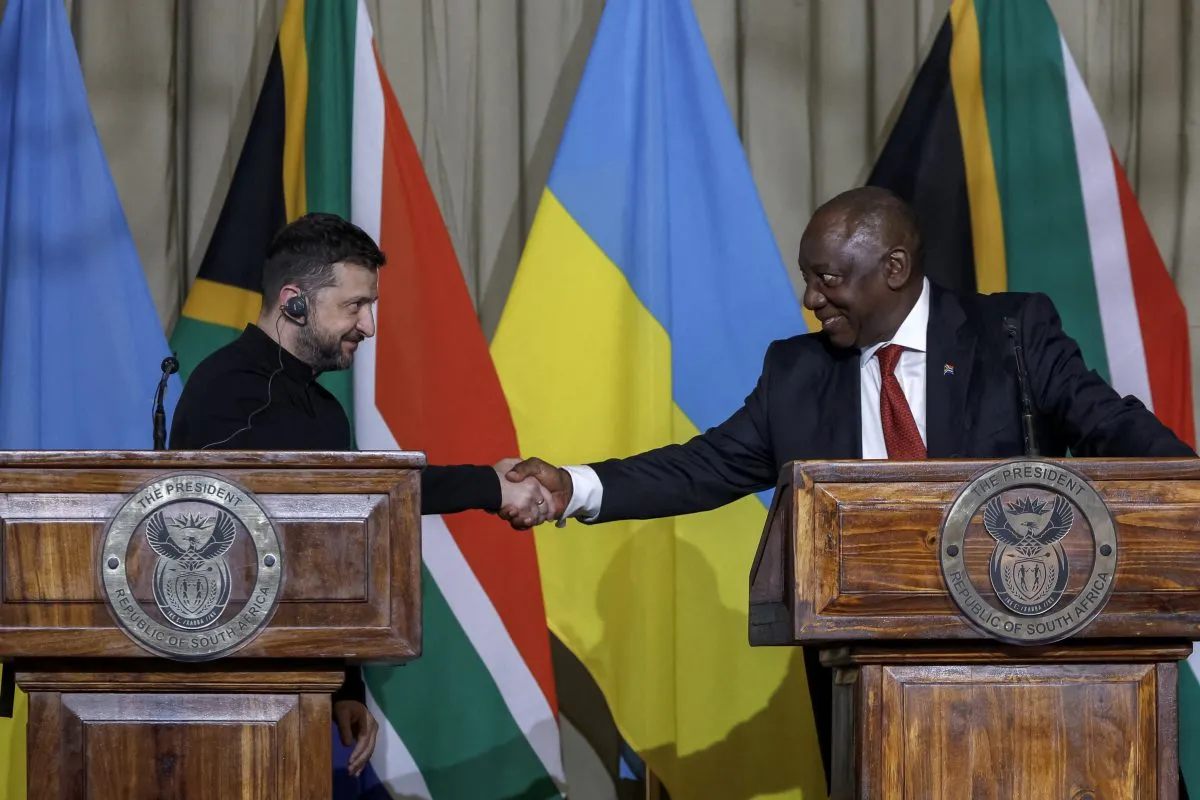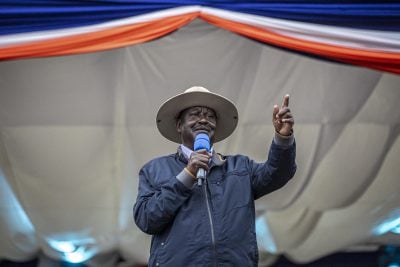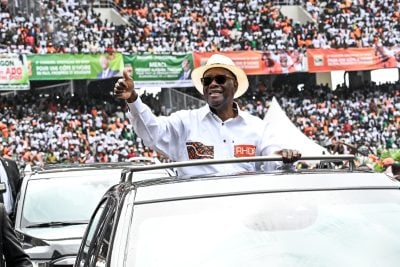In late April Ukrainian President Volodymyr Zelensky was welcomed to Pretoria’s Union Buildings by South African President Cyril Ramaphosa for a historic visit, the first by a Ukrainian head of state in 33 years since the post-apartheid establishment of diplomatic relations. The visit comes at a pivotal time in the history of Ukraine. After over three years of grinding war, the country’s long-time ally, the US, now under President Donald Trump, is attempting to force Zelensky into signing a lop-sided “peace” deal with Russia that would permanently give away occupied regions. Throughout the haphazard talks, featuring the uniquely incompetent diplomacy of Trump’s Moscow envoy Steve Witkoff, Trump has repeatedly blamed Zelensky for blocking peace.
As if to underline the impunity that Putin feels Trump grants him, Russia launched its largest attack on Kiev since July while Zelensky was in South Africa, killing at least twelve and forcing his return home.
Perplexing Pretoria
South Africa’s own policy towards Ukraine during the war has been baffling. During Joe Biden’s presidency, the country was more or less seen as a closet ally of Russia. Pretoria outraged Washington DC when it held joint naval exercises with China and Russia. Relations hit a low when Reuben Brigety, then US ambassador to South Africa, accused South Africa of helping to illegally ship arms to Russia – an allegation that South Africa fiercely denied.
Ramaphosa has enjoyed warm relations with Vladimir Putin throughout the war, and at times appeared to back Putin’s casus belli – that the war is a response to NATO expansionism in eastern Europe. Publicly, South Africa has tried to have it both ways, pointing to its history of non-alignment and efforts to encourage African-brokered dialogue. But the direction of travel seemed clear.
Yet in recent months Ramaphosa’s tone has changed. The invitation to Zelensky, who is desperate to mobilise support from the global south to counter the perception that Ukraine is a Euro-Atlantic obsession, was a surprise. And the tone during his visit was supportive: South Africa, Ramaphosa said “is deeply concerned about the continuing conflict in Ukraine, the loss of civilian lives, damage to critical infrastructure and deteriorating humanitarian situation,” and supports a “just” and “sustainable” peace.
Ramaphosa’s nostalgia for the Soviet Union’s backing of the ANC, the benefits of which were previously monopolised by Russia, were extended to Ukraine.
“We acknowledge with great appreciation the support we received from Ukraine during our liberation struggle. We recall that a number of exiled South Africans received training and education in Ukraine,” Ramaphosa tweeted.
Irritating Uncle Sam
What is behind this change of approach? It would be comforting to believe that Ramaphosa has woken up to the brutality of the war and Putin’s murderous contempt for international law. But Ramaphosa spoke to Putin shortly before Zelensky’s visit, and gave the usual noises about “working together towards a peaceful resolution of the Russia-Ukraine conflict”.
Reaching out to Zelensky may simply be a stick in the eye of the USA. In recent months, Trump has dragged relations with South Africa through the gutter – expelling ambassador Ebrahim Rasool, gifting asylum to Afrikaners that he baselessly insists are persecuted, and encouraging secretary of state Marco Rubio to boycott a G20 foreign ministers’ meeting in Johannesburg during South Africa’s rotating presidency of the bloc.
There is no love lost between the presidents, even if they have laid tentative plans for a meeting. Friendly with Russia during Biden’s presidency, a cynic might say that Ramaphosa is cosying up to Zelensky just as the new US administration has soured on him.
But South African policy towards Ukraine should be dictated by more than animus to the current US president, whether Republican or Democrat. The country’s own history of fighting colonialism and oppression, and its advocacy for a peaceful world order and respect for the UN charter, make Ukraine a cause worth supporting in its own right.
Want to continue reading? Subscribe today.
You've read all your free articles for this month! Subscribe now to enjoy full access to our content.
Digital Monthly
£8.00 / month
Receive full unlimited access to our articles, opinions, podcasts and more.
Digital Yearly
£70.00 / year
Our best value offer - save £26 and gain access to all of our digital content for an entire year!

 Sign in with Google
Sign in with Google 



